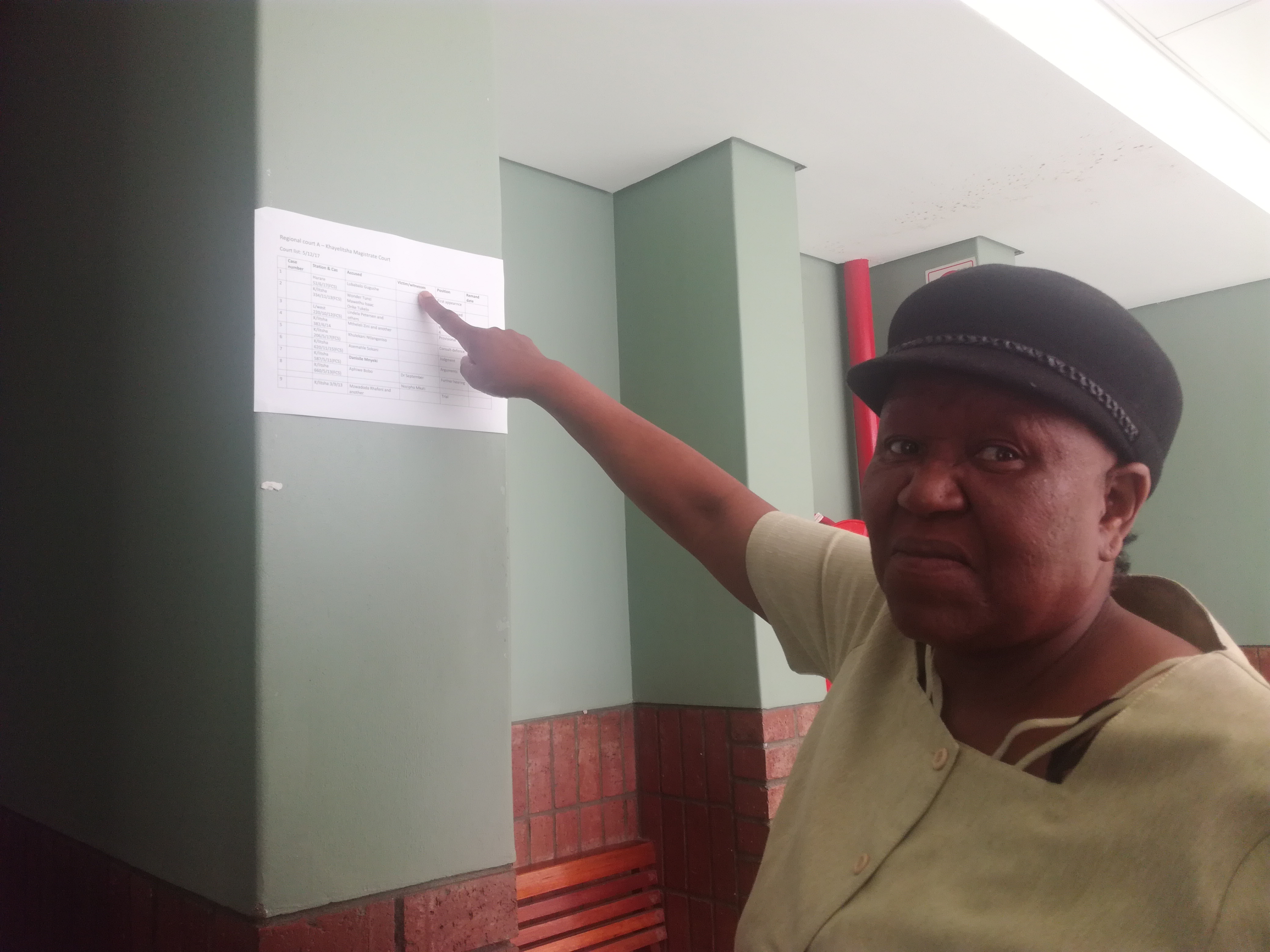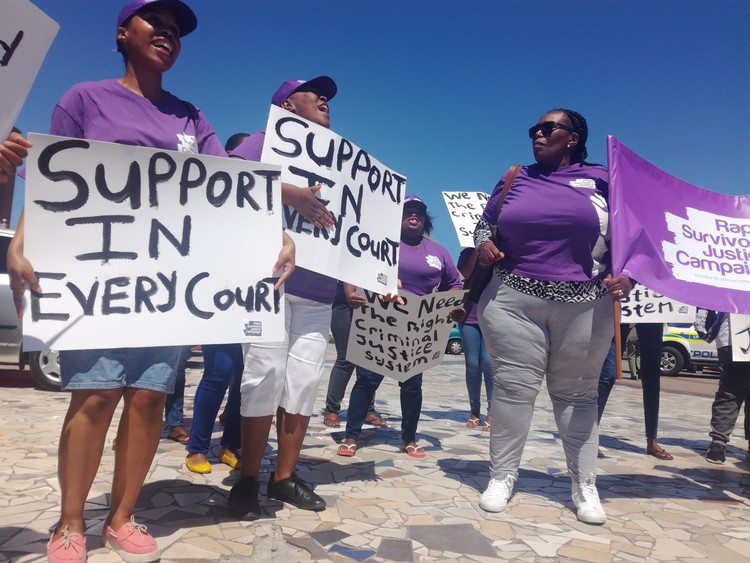Rape survivors deserve privacy in court, says Rape Crisis
Call for Khayelitsha to have a special sexual offences court
Rape Crisis supporters and some residents picketed outside the Khayelitsha Magistrates’ Court on Tuesday, calling for a dedicated sexual offences court for the area.
Among the protesters was Ntombekhaya Norushu, who has been counselling rape survivors in Khayelitsha for the past ten years.
Because she does not have a permanent office in the court building, she often has to counsel survivors in a room shared with other court staff, or in a tiny interview room in the holding cells below the court. This is not ideal, she explains.
Norushu took GroundUp to courtroom A, where sexual offences cases are heard. Pinned up on the courtroom door is a list of names of the accused, witnesses and survivors.
“Look, it’s in front of everyone here,” she said.
“I come to this list in the mornings and have to call out the names for the survivors because they don’t always know where to find me. And sometimes they are scared to get up and come with me,” she said.
Norushu said when the court was busy, rape survivors and young children who were victims of sexual offences were forced to walk past the accused, or even sit waiting in the same space.
“It’s not nice when survivors have to walk through with everyone sitting there. Sometimes the women come here and they cry when they see the perpetrator and his family sitting next to them on the bench,” she said.

Khayelitsha has one courtroom allocated for these cases, which Rape Crisis believes is not enough. Protesters on Tuesday called for a separate entrance and waiting room for survivors and for more specially trained court staff.
“It is unacceptable that a community like this does not have a sexual offences court,” the organisation said in a statement.
In 2017, Khayelitsha was among the ten precincts with the highest number of reported sexual offences cases in the Western Cape. With 229 cases of rape and sexual abuse reported in 2015, 223 in 2016 and 156 in 2017 the area also had among the highest statistics in the country.
Sexual offences courts were dissolved about ten years ago. A bill reintroducing the courts was passed by parliament and signed off by the president in January 2014, following demands by civil society groups and rising sexual violence.
The Department of Justice then promised to roll out about 60 of these courts across South Africa.
But in May this year, Deputy Justice Minister John Jeffery announced that the department was considering cutting resources to sexual offences courts. This sparked Rape Crisis’ new campaign to force government to set up the specialised courts. The organisation believes that this will “help restore faith in the criminal justice system” and provide dignified support for survivors during the court process.
On Tuesday, Jeffery also took a brief tour of courtroom A. Speaking to protesters outside, he promised to meet Rape Crisis early next year to find a solution. Jeffery admitted that while there was a form of a sexual offences court, it did not meet all of the necessary requirements.
But, he said, one of the main challenges in Khayelitsha was space.
“I spoke with magistrates and court staff and asked how long it took to finalise a sexual offences matter. They told me the oldest one is from 2013. That is much too long,” he said.
How are sexual offences courts different?
-
They only deal with sexual offences cases like rape.
-
They have specially trained magistrates, prosecutors, and court supporters.
-
They must have a special courtroom and private testifying rooms with CCTV so that survivors, minors or other witnesses are not forced to have contact with the accused.
-
They must have support and counselling for abuse victims and rape survivors.
-
They should decrease time between reporting a case to police and finalisation.
-
They should improve the conviction rate.
Support independent journalism
Donate using Payfast

Don't miss out on the latest news
We respect your privacy, and promise we won't spam you.
Next: Court rules in favour of mother tongue education
Previous: We save people, but who is saving us from crime? ask paramedics
© 2017 GroundUp. 
This article is licensed under a Creative Commons Attribution-NoDerivatives 4.0 International License.
You may republish this article, so long as you credit the authors and GroundUp, and do not change the text. Please include a link back to the original article.

